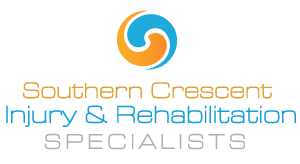Traumatic Brain Injury (TBI) and concussions are types of head injuries that result from a forceful impact or blow to the head or body. These injuries can have varying degrees of severity, and they can lead to a wide range of physical, cognitive, emotional, and behavioral symptoms. Understanding TBI and concussions is crucial for recognizing and managing these conditions effectively. Here is a description of TBI and concussion, including their causes, symptoms, and treatment:
Traumatic Brain Injury (TBI):
- Causes: TBIs can result from various incidents, including falls, car accidents, sports injuries, physical assaults, and explosions. They occur when an external force causes the brain to move within the skull, leading to damage.
- Types: TBIs are categorized based on their severity:
- Mild TBI: Also known as a concussion, mild TBIs are the most common and least severe type. They may cause temporary cognitive and physical symptoms.
- Moderate TBI: These injuries involve more significant damage to brain tissue and can result in lasting cognitive and physical impairments.
- Severe TBI: Severe TBIs are life-threatening and can lead to permanent disabilities or even death.
- Symptoms: The symptoms of TBI can vary widely but may include headache, confusion, memory problems, dizziness, nausea, sensitivity to light or noise, mood changes, and loss of consciousness.
- Diagnosis: Diagnosis typically involves medical imaging (CT or MRI scans), neurological exams, and assessment of symptoms. Severity is often classified using tools like the Glasgow Coma Scale.
- Treatment: Treatment depends on the severity of the TBI. Mild TBIs (concussions) often require rest, cognitive and physical rest, and symptom management. More severe TBIs may necessitate surgery, rehabilitation, and ongoing medical care.
- Long-Term Effects: Some individuals with TBI may experience lasting cognitive, emotional, or physical effects that require ongoing treatment and support. Rehabilitation programs can help improve function and quality of life.
Concussion:
- Definition: A concussion is a mild form of TBI. It is typically characterized by temporary disruption of normal brain function due to head trauma, often without visible signs of injury on medical imaging.
- Causes: Concussions can occur in various situations, including sports injuries, car accidents, falls, and physical altercations. They result from a sudden acceleration or deceleration of the head.
- Symptoms: Common symptoms of a concussion include headache, dizziness, confusion, memory problems, sensitivity to light or noise, nausea, and changes in mood or behavior.
- Diagnosis: Diagnosis relies on clinical evaluation, including assessment of symptoms, cognitive testing, and a neurological exam. Imaging may be used to rule out more severe injuries.
- Treatment: The primary treatment for a concussion is rest, both physical and cognitive, to allow the brain to recover. This often includes avoiding activities that can worsen symptoms, such as physical exertion, screens, and bright lights.
- Recovery: Most individuals with concussions recover fully with time and appropriate rest. However, it’s crucial to follow medical advice and avoid returning to physical activities or sports too soon to prevent further injury.
Both TBI and concussions require careful management and monitoring, as they can have lasting effects on an individual’s health and well-being. Seeking prompt medical attention and following prescribed treatment plans are essential for a successful recovery. Additionally, measures to prevent head injuries, such as wearing helmets during sports or using seat belts in vehicles, are crucial for reducing the risk of TBIs and concussions.

